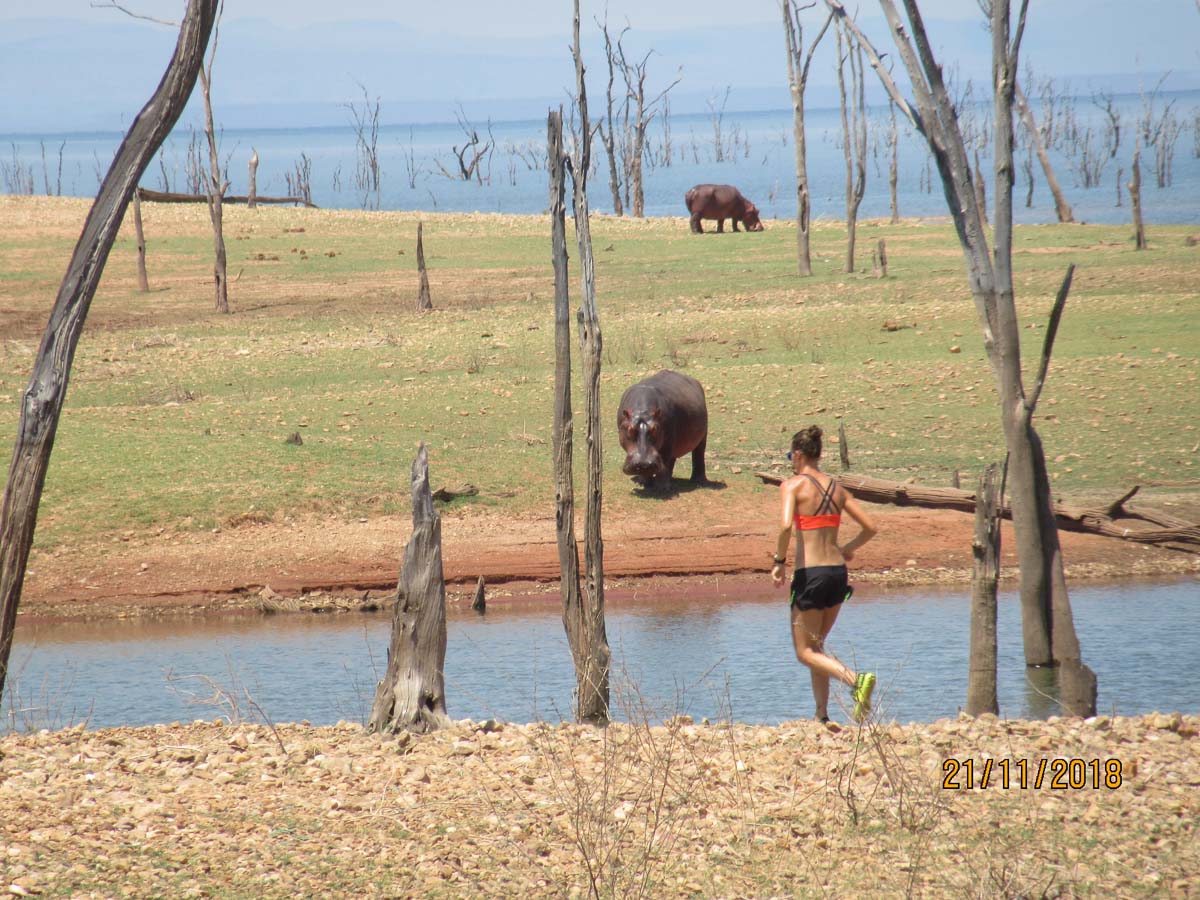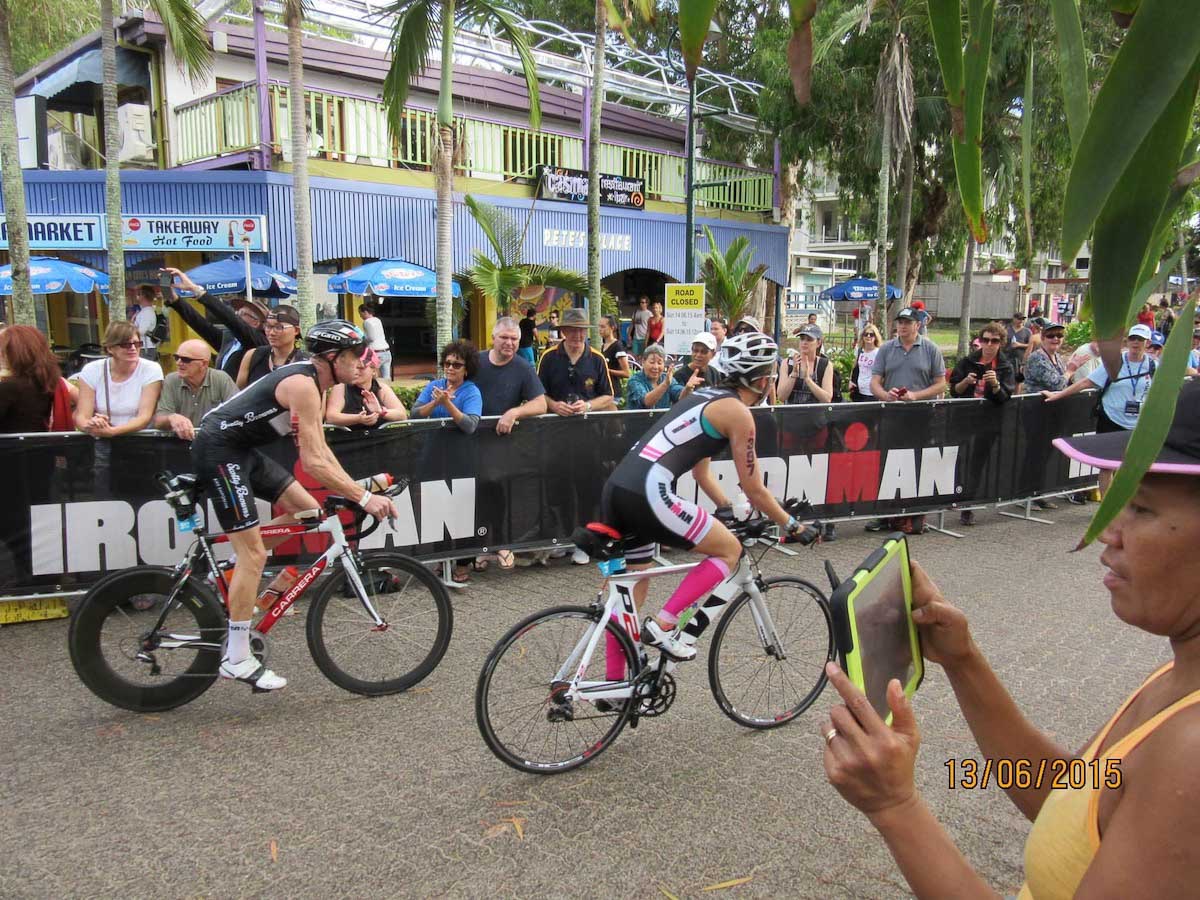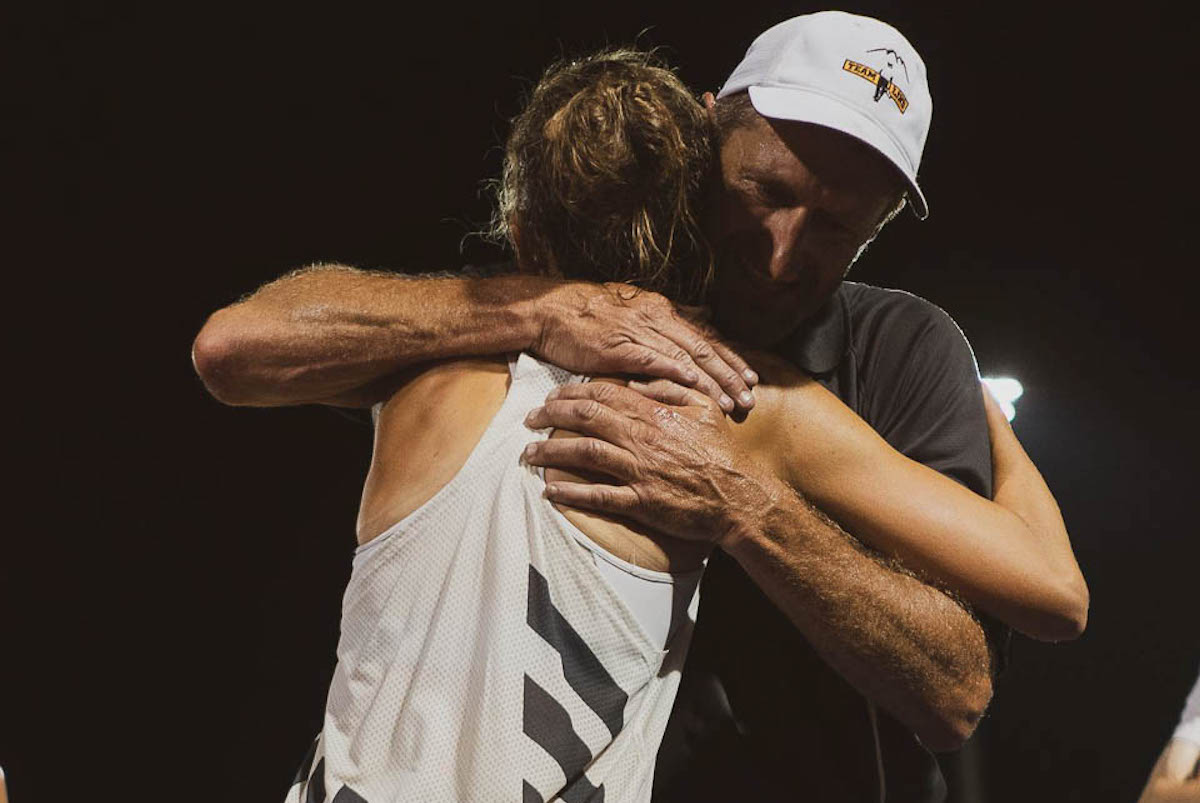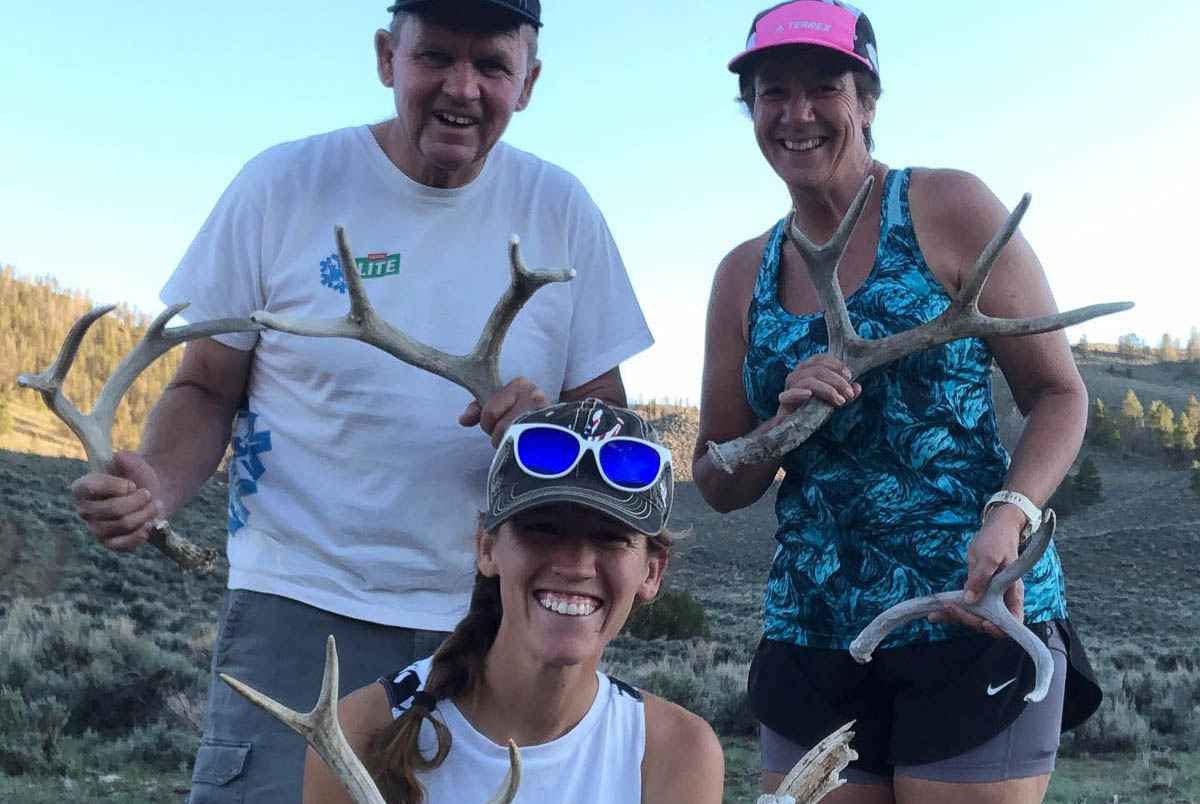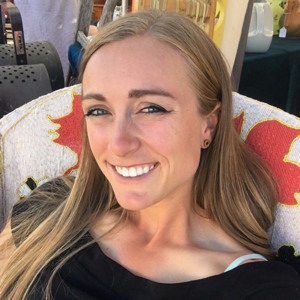Emily Hawgood had quite the childhood. Growing up in the small farming community of Beatrice, Zimbabwe, just outside the capital city of Harare, Emily played nearly every sport imaginable: field hockey, tennis, swimming, track, and cross country, the latter two in which she ran barefoot.
“I didn’t wear shoes to run until I went to Idaho for college,” said Emily, laughing. “Growing up on a farm, barefoot every day since the day I could walk, that’s just what was normal to me.”
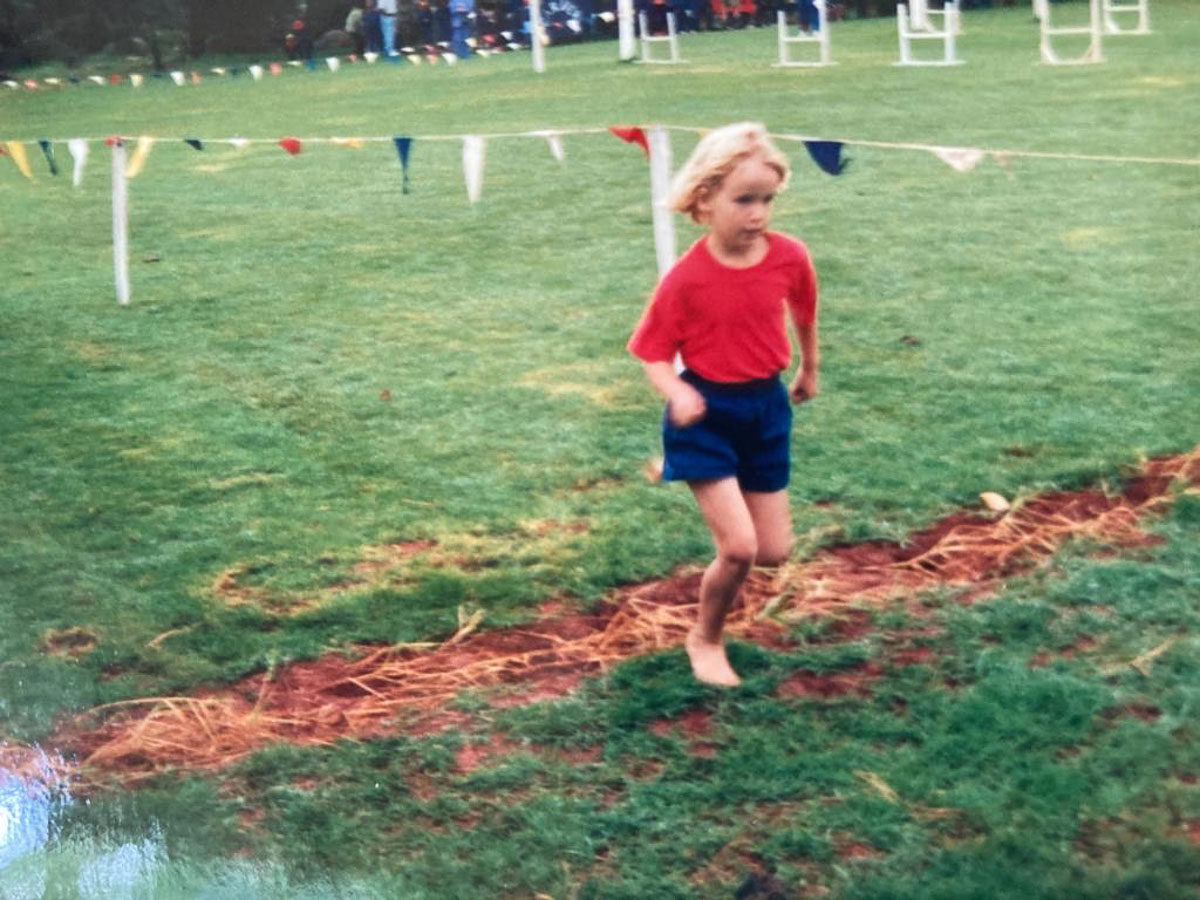
Emily Hawgood running barefoot at Springvale House in Zimbabwe during her grade 1 year. All photos courtesy of Emily Hawgood unless otherwise noted.
In 2021, Emily had an incredible breakout in the ultrarunning world: after joining the adidas Terrex team, she placed seventh at the Western States 100, and doubled down to place 10th at UTMB.
But it was a hard-fought battle. She hoped to get a Golden Ticket into the Western States 100, but the qualifying races didn’t go as planned. She went out too hard at the 2021 Bandera 100k, placing third and just missing a ticket. She took a hard fall at the 2021 Black Canyon 100k in the first few miles, but fought through to finish the race in seventh. There was only one option left with the 2021 Canyons 100k, and there she delivered, placing fourth and earning her spot at the Western States 100 as second and third place already had Golden Tickets.
The fact that Emily placed in the top-10 women at both the Western States 100 and UTMB in the same summer, after three 100k races in the spring, is a testament not only to her natural running talent, but also her grit and never-quit mindset. She largely attributes these traits to her upbringing in Zimbabwe.
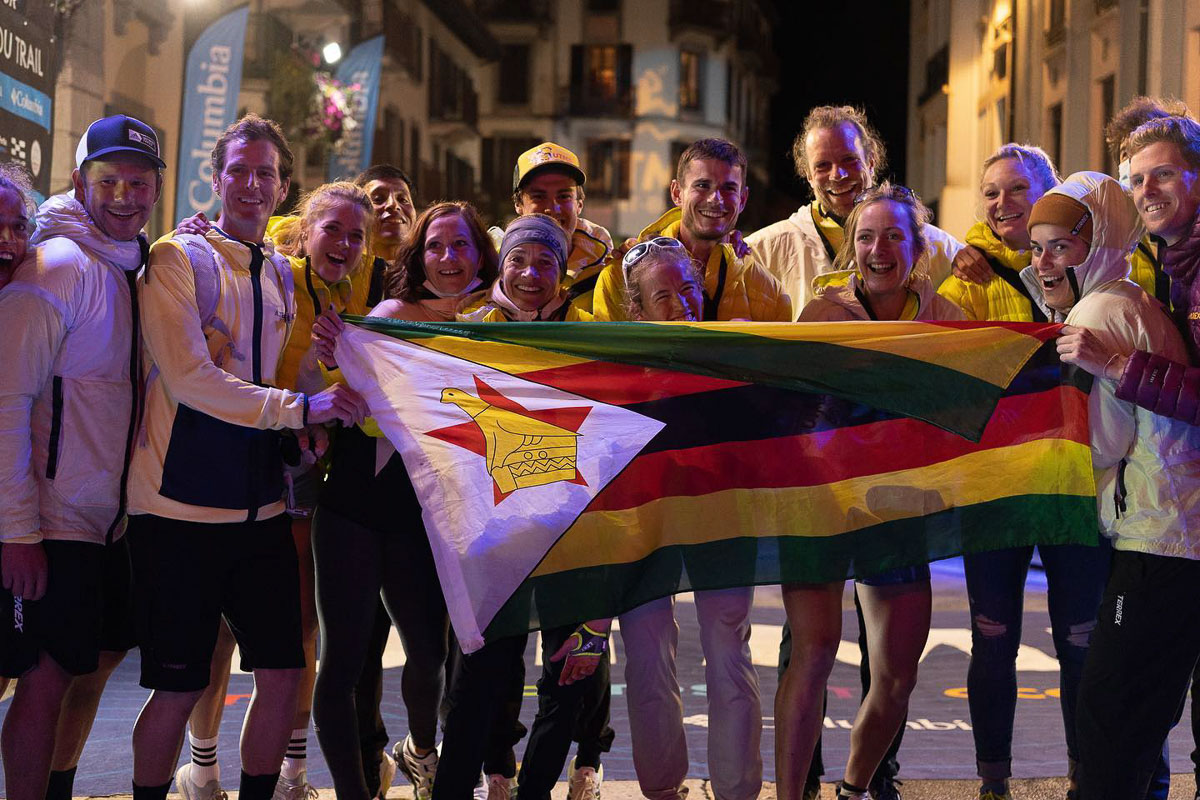
Emily (almost hiding behind the flag near the center) with her adidas Terrex team after the 2021 UTMB. They’re holding the flag of Zimbabwe. Photo: Ian Corless
“It was a good life, but it was a hard life growing up. Nothing is handed to you, and you’re constantly grateful for what you have. My parents worked really hard to provide for us [on the farm], and it was constant hard work for all of us,” she said.
The village of Beatrice is “so small, if you blink, you miss it,” according to Emily’s parents, who own and operate a modest farmstead growing feed for dairy cows and some small crops like potatoes. Emily remembers her upbringing as very community-based: you have to work really hard for what you have, so when all the neighbors come out for a cookout or cricket game, every moment is savored.
“You gain a huge appreciation for what you have,” she explained.
From the age of five, Emily went to a boarding school in Marondera, a city about two-and-a-half hours from her home — first to Springvale House, and then Peterhouse. She and other students only went home one weekend or so a month, fostering a sense of independence within the structure of the school, which encouraged her participation in sport.
While less than 1% of Zimbabwe’s population is white, her school was “about 50/50 white and Black Zimbabweans,” the majority of the students coming from middle-class homes.
With limited university opportunities in Zimbabwe, Emily looked abroad for her college education. With the mountains of New Zealand still in her mind from a childhood trip, she looked to places with mountains and landed on the United States, specifically Idaho.
She attended the College of Idaho from 2013 to 2017 and became even more involved in sports, dedicating her time to swimming, cross country, and track. “I wasn’t the best at any of those sports, but I really loved [running].” In the midst of this, she also started competing in triathlons.
“I went to see the Ironman triathlon in Port Elizabeth South Africa], and my friends couldn’t pull me away from the finish line. You know, you see everything there, and I thought it just looked so cool, I was fascinated. I even started talking to a swim coach while watching.”
Soon after she graduated, Emily met Paul Lind of G20 Coaching. He started describing trail running and mountain running, specifically the Skyrunner World Series, which his son, Cody Lind, was also participating in at the time. From there, Emily was hooked.
“I focused on the Skyrunner World Series throughout 2017. It was a huge learning curve. You have to be comfortable with falling — knowing you will fall — and get the confidence to just cruise downhill. It’s a very humbling sport. It’s nice because you don’t have to think so much about time: maybe I’m doing a six-minute mile on the road, but I could be doing a 30-minute mile going up some kind of steep slope.”
Through a mutual friend, Emily was able to gain some kit from the brand Scott — not an actual sponsorship, but at the time she was just elated to be running these kinds of races. At the end of 2017, she decided to do something a little closer to home — Ultra-Trail Cape Town 65k in South Africa.
Neither she nor her coach Paul expected her to do anything extraordinary, but she came in second place, a fair 13 minutes behind Kirsten Amundsgård. It was there that her journey to ultra-distances started, but she wasn’t so eager to jump into a 100-mile race right away.
“I love the training process,” said Emily. “Races are great, and they’re fun, but they’re like little gold stars on my journey [each year]. There’s a different magic with training, compared to racing.”
Moving deeper into the mountains and into her education, Emily attended Western Colorado University in Gunnison, Colorado, smack dab between the Sawatch Range and the San Juan Mountains. Obtaining a master’s degree in High Altitude Exercise Physiology, Emily dug deeper into the trail and ultra scene, garnering success at everything from the speedy American River 50 Mile to the ultra-technical Hamperokken Skyrace, ’til she finally ran — and won — her first 100-mile race at the IMTUF 100 Mile.
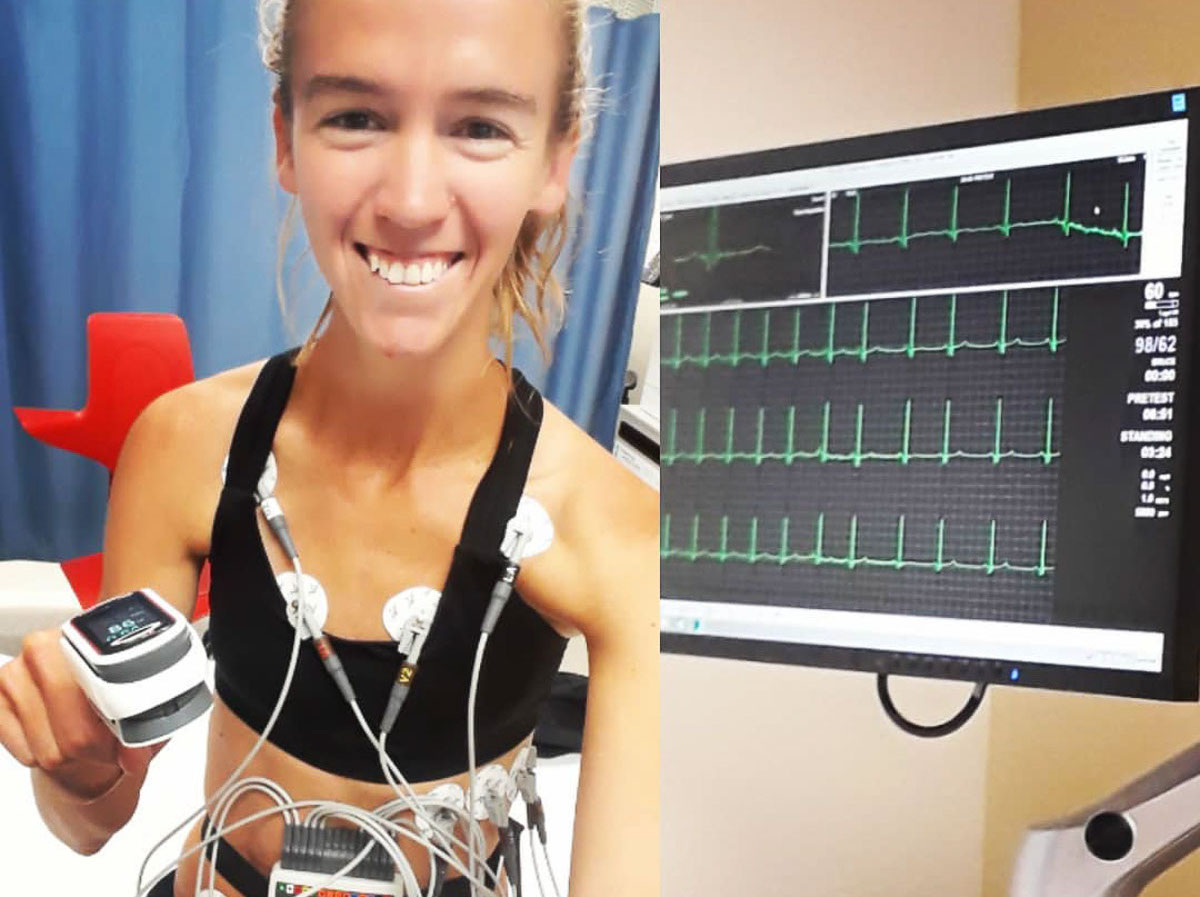
Emily testing out a heart monitor during her master’s degree program in High Altitude Exercise Physiology at Western Colorado University.
“I learned so much [in 2021]. It was the first year I focused really hard on one part of the sport, running long. I gained a lot of strategy and confidence for these longer races … I have always loved competing too so as much as my goals are to go out and enjoy and push myself to see what I can achieve, I’ve always been competing and going out to give it my very best shot!
“[This year] hasn’t changed my goals, and being a young athlete I love trying new things, working on weaknesses. As much as my strengths lie in the 100k and 100-mile distances, I do want to see if I can excel at the shorter distances … to expand my palette of skills.”
With her master’s degree and extensive race experience, Emily has started working as a coach, guiding athletes to their goals, which vary from a local 5k to their first ultra. While she hasn’t moved into the science or research realm with her degree yet, she enjoys putting it to use in her coaching and just helping friends and colleagues figure things out with their own training.
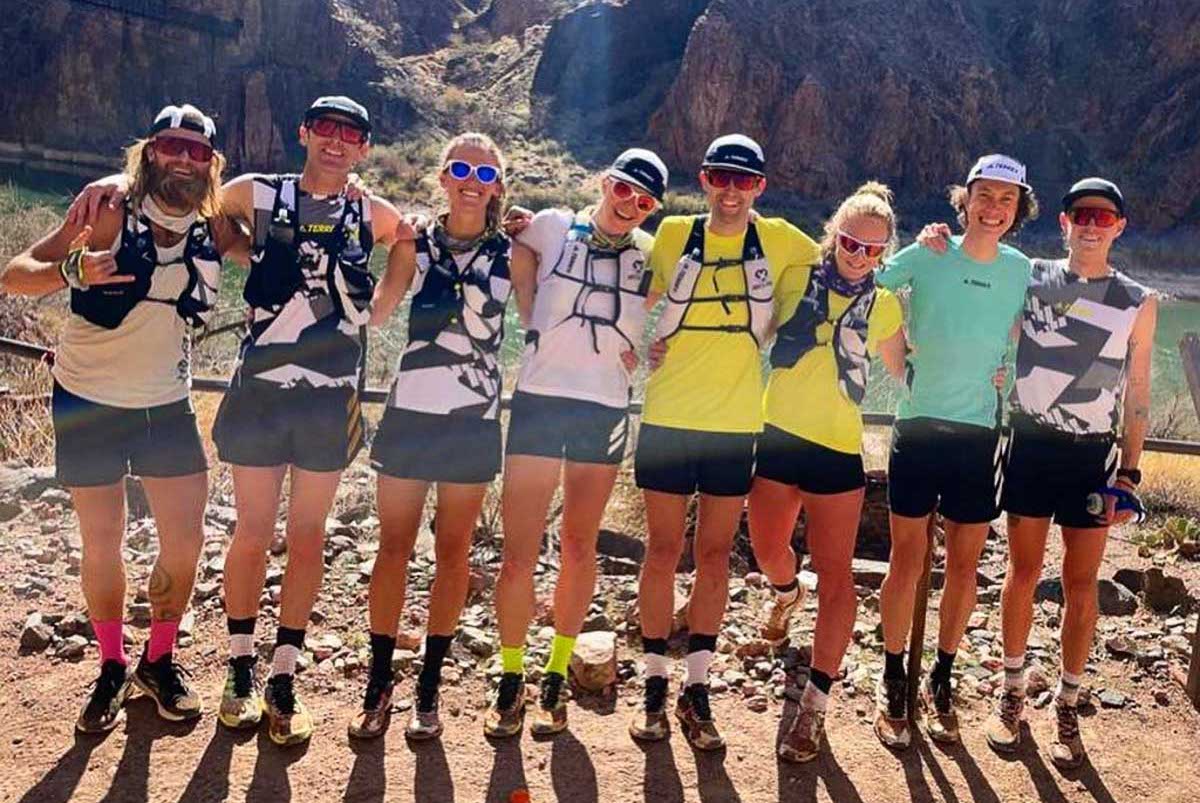
Emily (third from left) and the adidas Terrex team during their 2021 training camp, on a run in the Grand Canyon in Arizona.
One of the most important things, that seems to come naturally to Emily, but a quality she has also honed over the last few years, is a never-quit attitude.
“It doesn’t matter to me what place I’m going to get. If I start, I’m going to finish. Obviously if you’re injured that’s a different story, but I think people shouldn’t focus so much on their place or success, but the fact they get to be out there in the mountains, having fun, and competing with themselves. Even if I have a bad day, I’m going to keep going until the end.”
